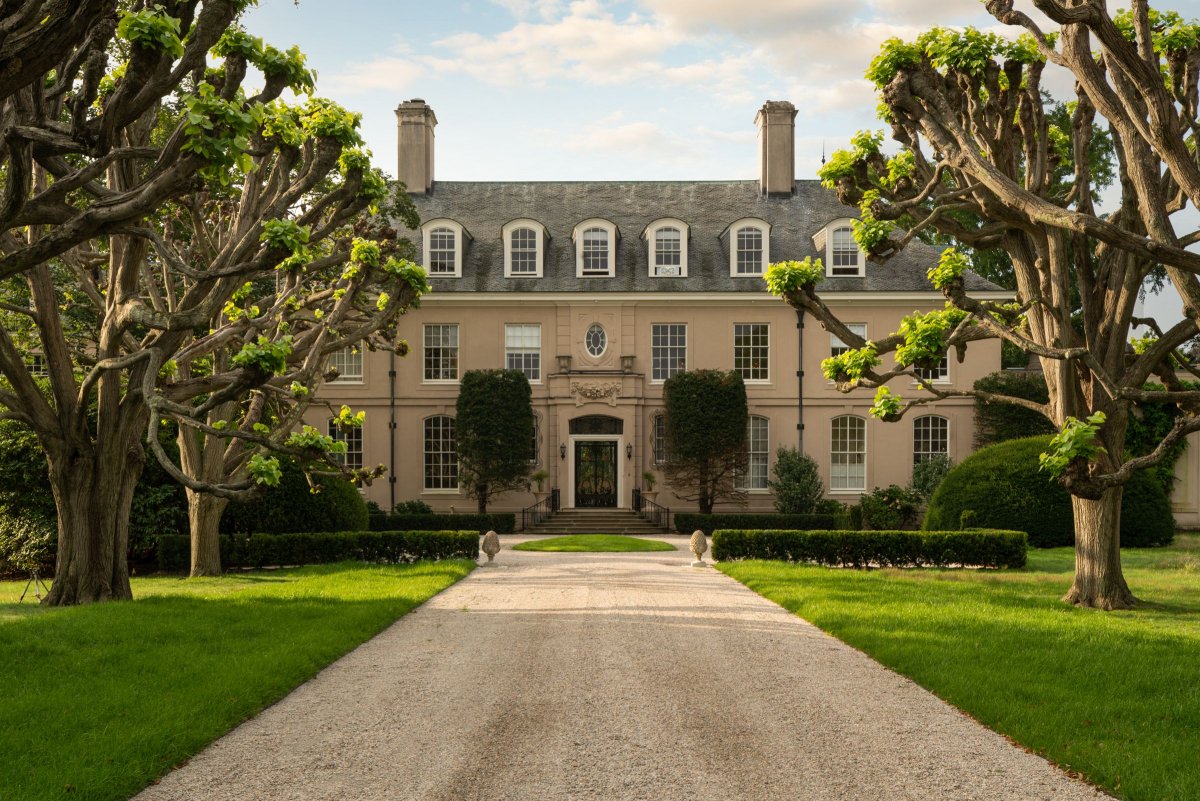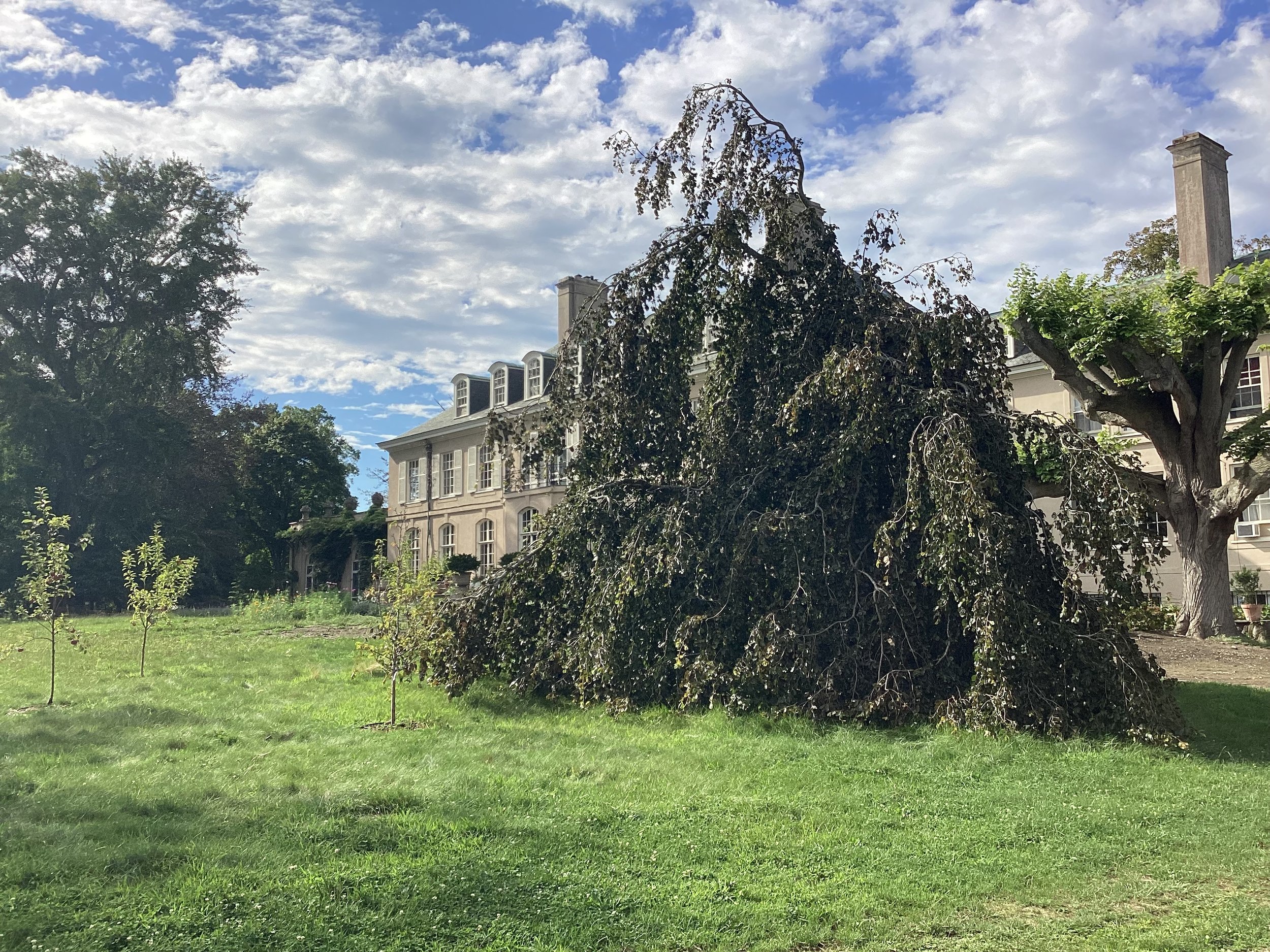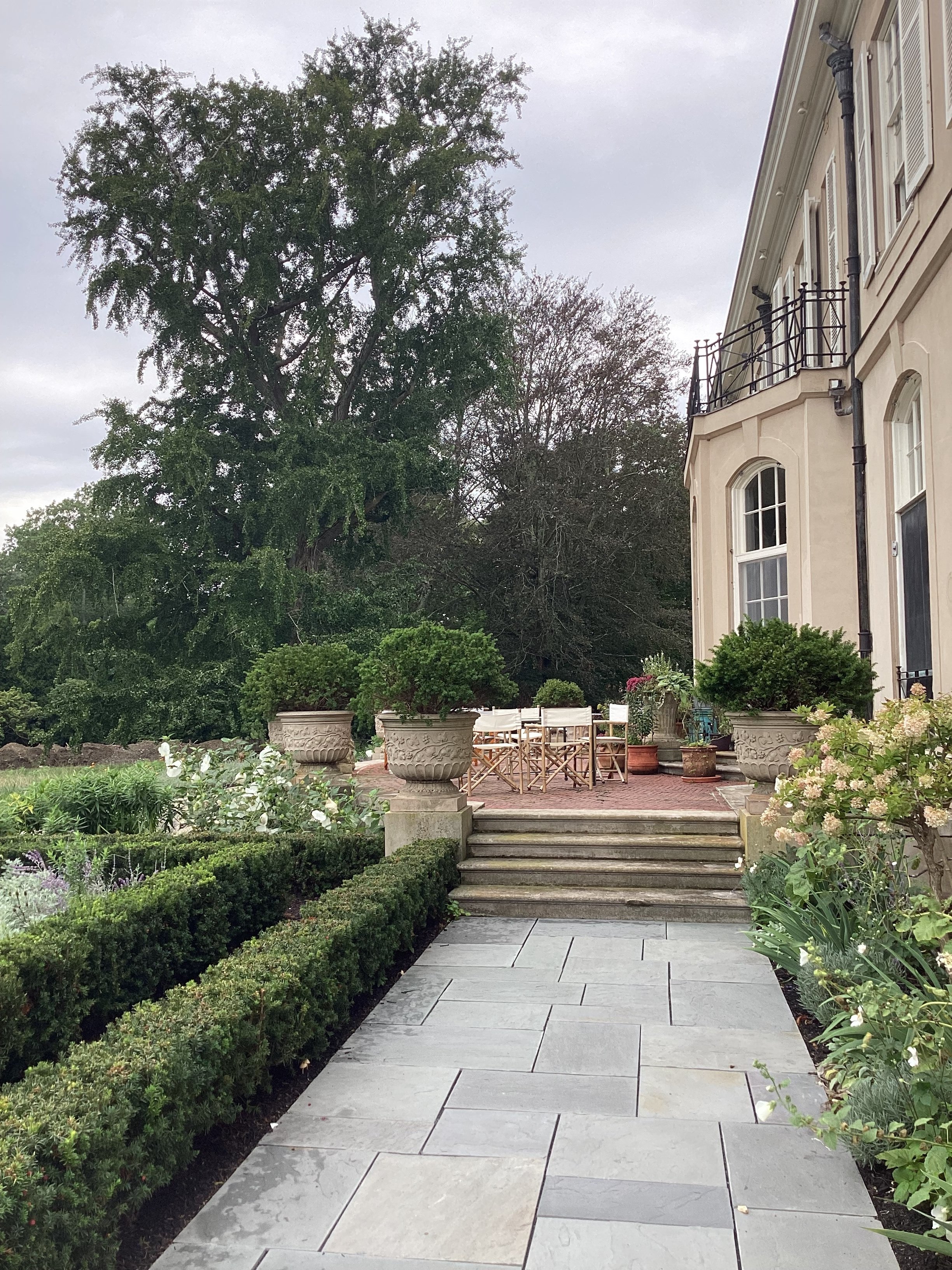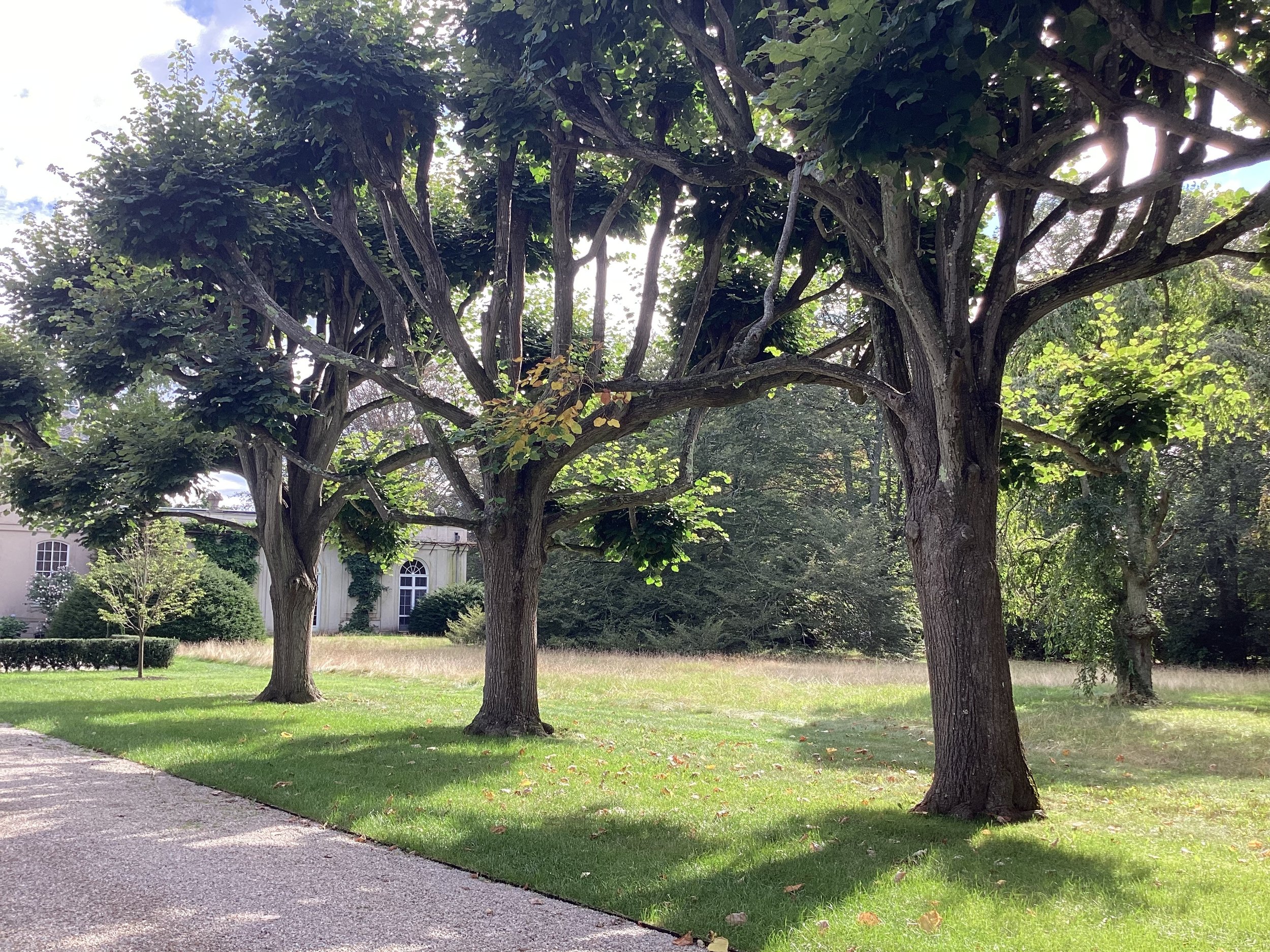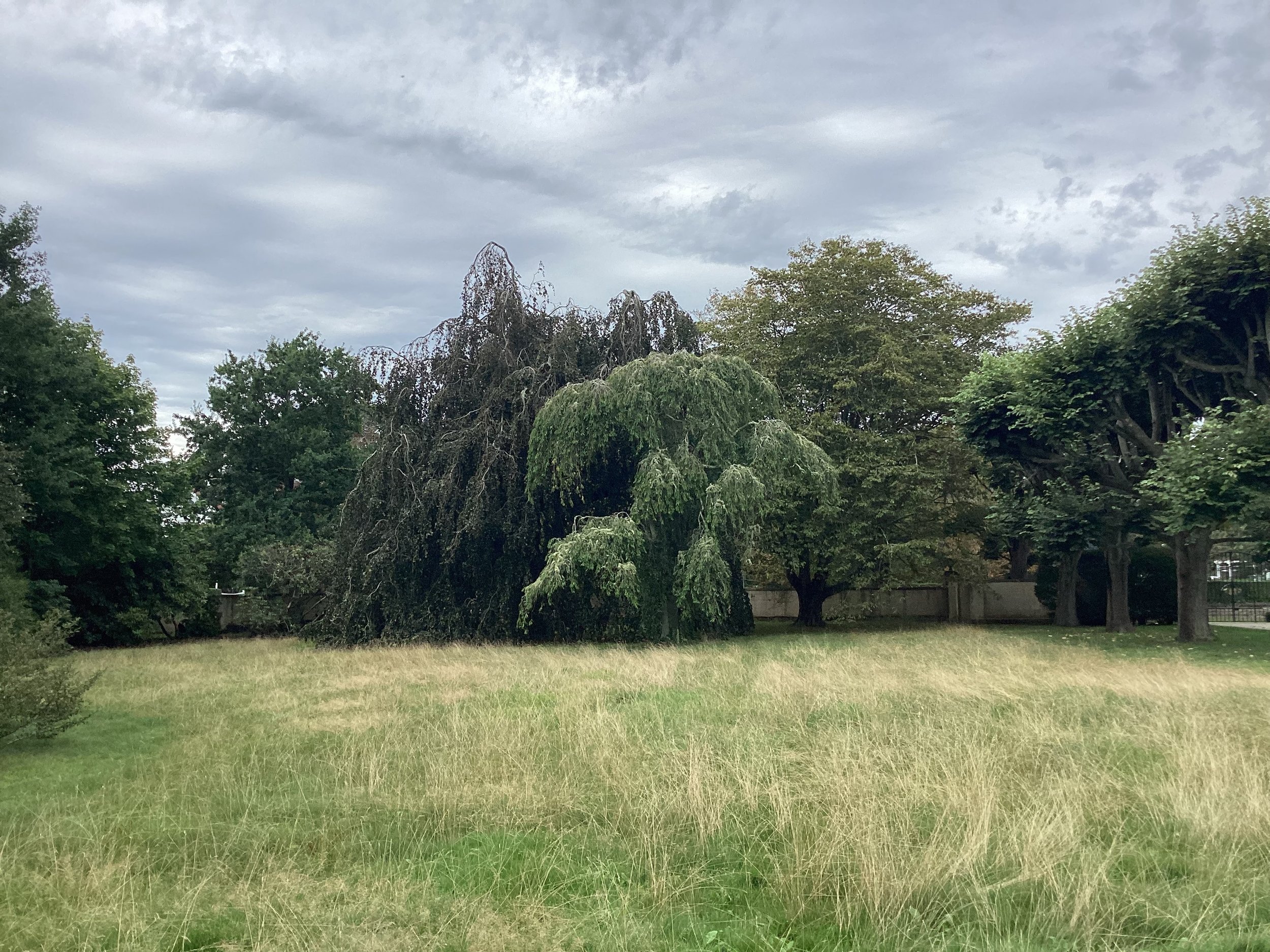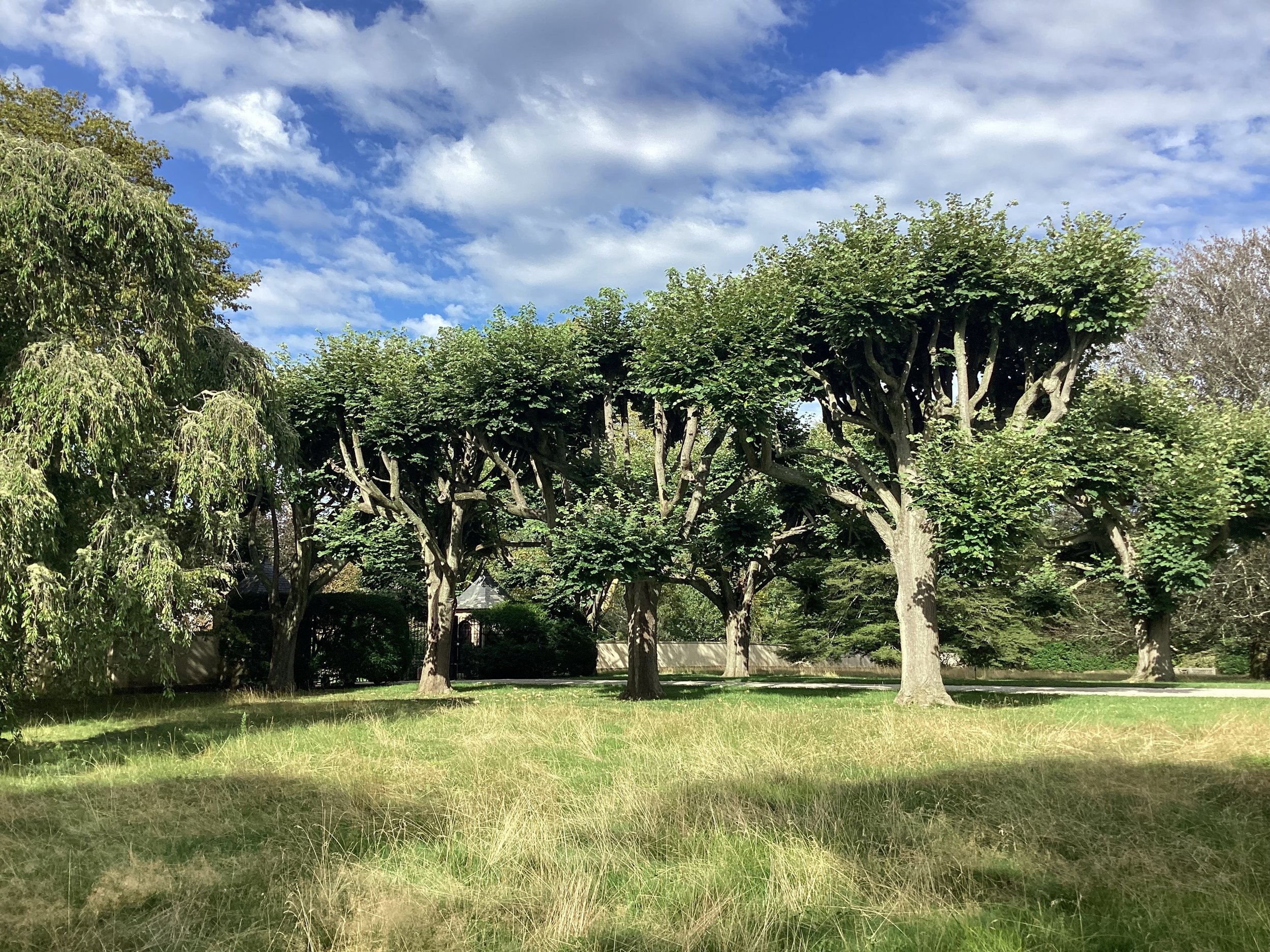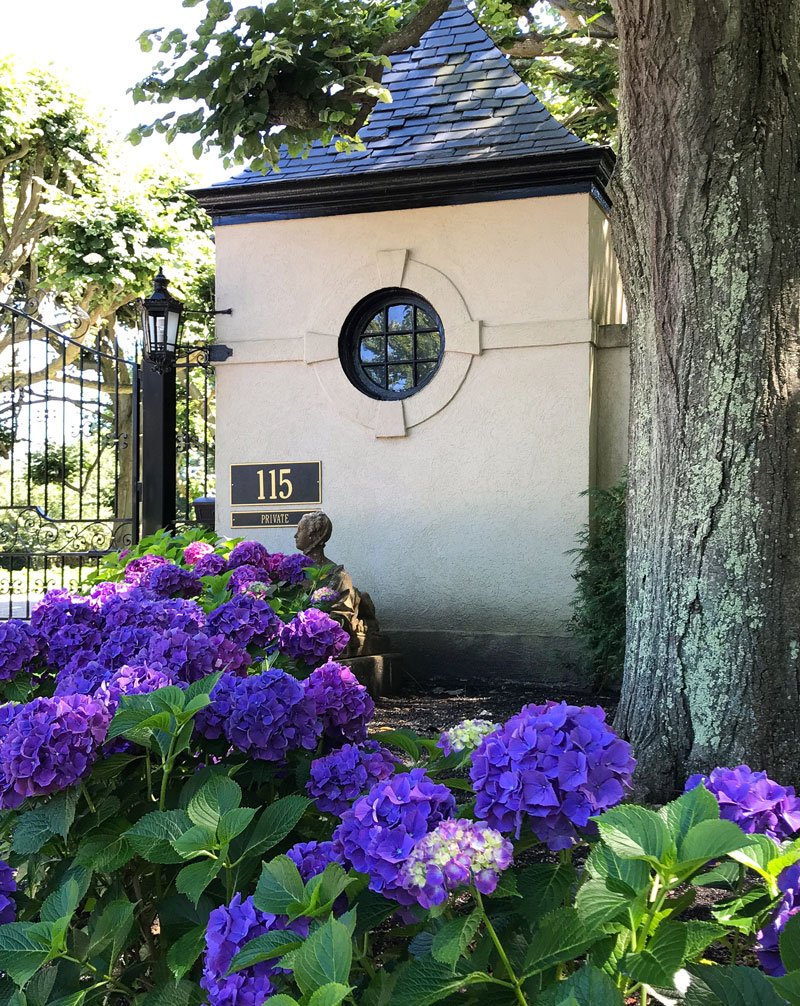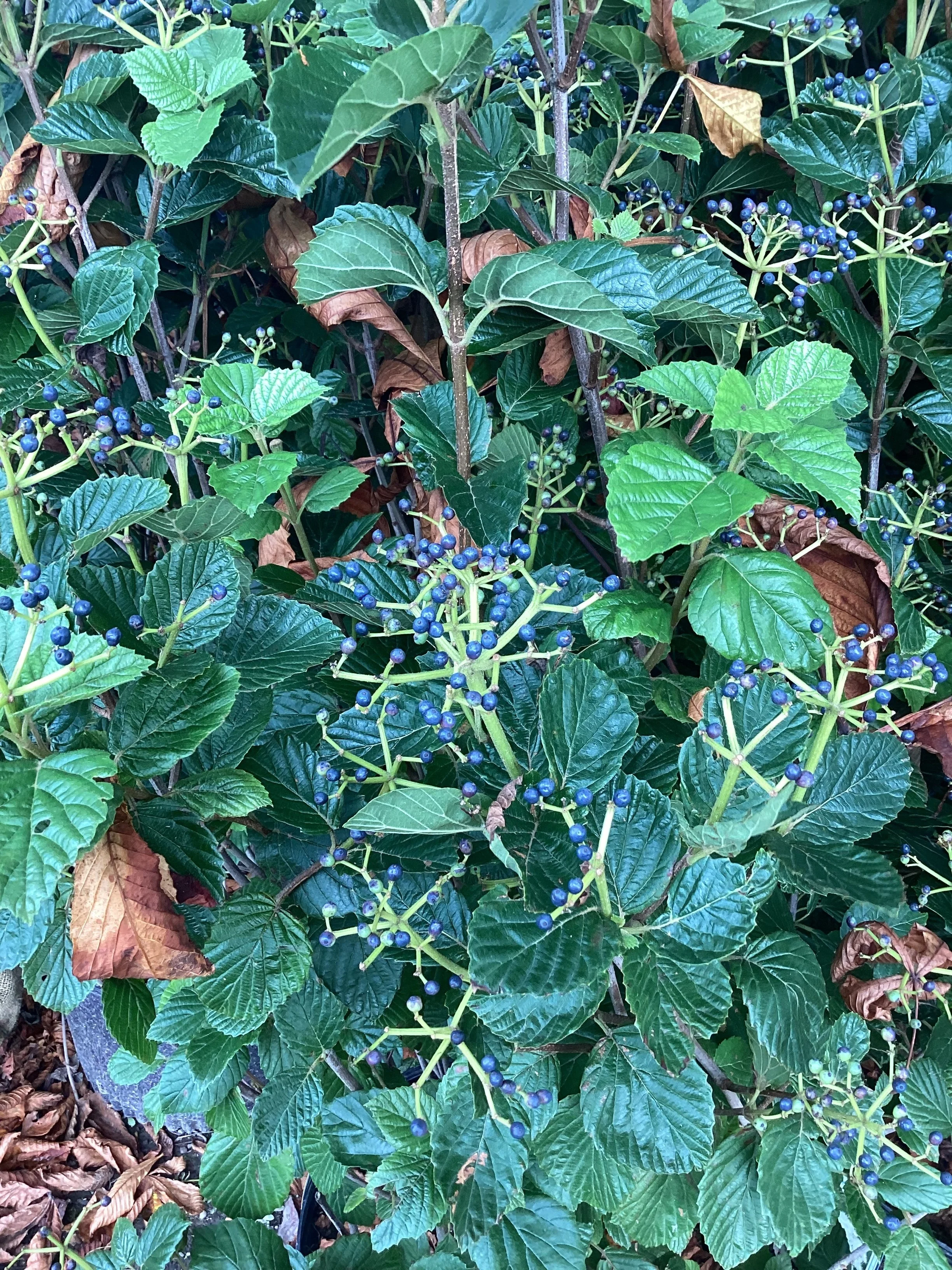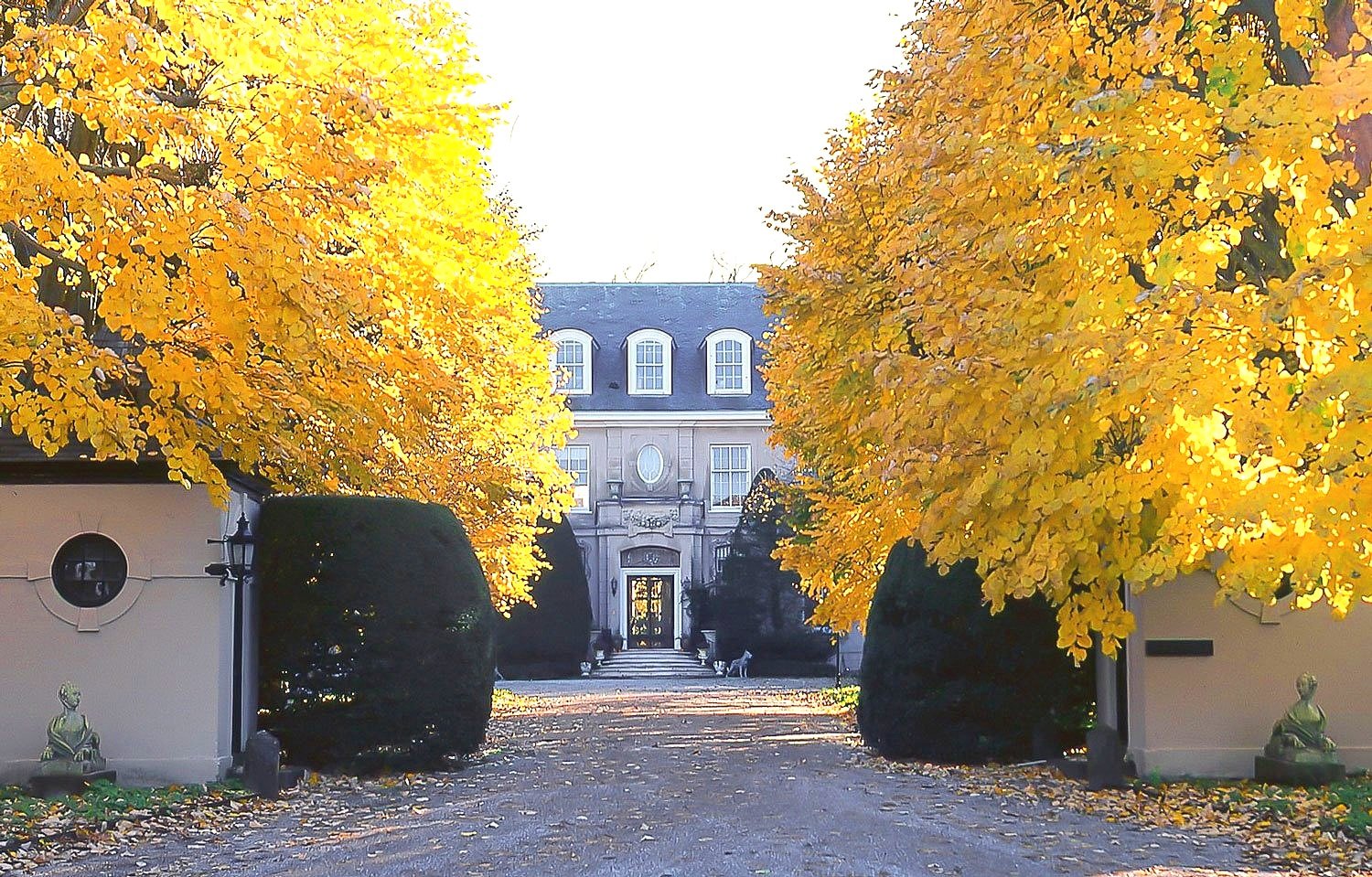
Bois Dore Arboretum
The Property
The estate was originally over 11 acres, but acreage has subsequently been
reduced by more than half. The greenhouses and the impressive katsura allée to the
west are no longer owned by the estate. Large mature trees in lawns have been the
characteristic of the site, with significant trees such as a large gingko and beech trees
probably predating the current house on the site, which in 1929 was built on the
foundation of a prior house. Charles Platt, landscape architect and architect of the
current house, specified the linden allée leading to the front door, and the wisteria,
which is on the outside of the ballroom, both of which are being actively maintained. If
Platt designed a formal garden, no trace of it exists today.
The current owners, Anne Fairfax & Richard Sammons, recognize that there is a
decline in biodiversity, an increase in severe weather events, and that established
gardening practices may not be sustainable or successful in a changing future. The goal
is to encourage the proliferation of wildlife on the site through the replacement of some
lawn space with wildflower meadows. In addition, planting beds of native plants have
been established and allowing the grass to grow, rather than being kept mowed, has
been introduced to create an understory of growth for wildlife. The use of pesticides has
been forbidden and leaf blowers are strictly prohibited. The trees on site are being
tended to through pruning when necessary, and the beech trees are being treated for
BLD. Keeping the setting healthy and supporting the entire ecosystem should create a
garden where the trees will thrive. In the case that trees are lost, they will be replaced
with American White Oak (Quercus alba) a tree that provides a variety of benefits and is
currently under no threat of disease.
The Collections
The general design of the arboretum is centered around several mature trees
situated in the expansive lawn. The tree types follow the pattern of Newport planting in
the 19 th and early 20 th century, with exotic specimen trees aimed to impress the
observer. Extant specimens include copper beech (Fagus sylvatica ‘Atropunicea’),
weeping beech (F. sylvatica ‘Pendula’), and weeping cherry (Prunus subhirtella
‘Pendula’), as well as formally managed pollarded lindens. A mix of conifers and
broadleaf evergreens line the borders of the property to create a screen, including
interesting shrubs such as False Holly (Osmanthus heterophyllus) and two Dexter
rhododendron hybrids. Other notable trees include a large European hornbeam
(Carpinus betulus), sourwood (Oxydendron arboreum), and the uncommon harlequin
glorybower (Clerodendrum trichotomum). An orchard with pears, quince, and apples
was installed in spring of 2023. Formally pruned Japanese yews (Taxus cuspidata)
serve as foundation plants, greeting visitors in the front of the house.
Bois Dore Plant Inventory
Scroll down and to the right for more items
The Mission
The mission of Bois Doré Arboretum is to encourage the proliferation ofwildlife on the site through the replacement of some lawn space with wildflower meadows. In addition, planting beds of native woody and herbaceous plants have been established and allowing the grass to grow, rather than being kept mowed, has been introduced to create an understory of growth for wildlife. The trees on site are being stewarded through regular pruning, and the beech trees are being treated for BLD. Keeping the setting healthy and supporting the entire ecosystem should create a garden where the trees will thrive. In the case that trees are lost, they will be replaced with American White Oak (Quercus alba) a tree that provides a variety of benefits and is currently under no threat of disease.
Bois Dore Tree Map - Google Maps
Select the “+” icon below to zoom in to see tree collection details.
